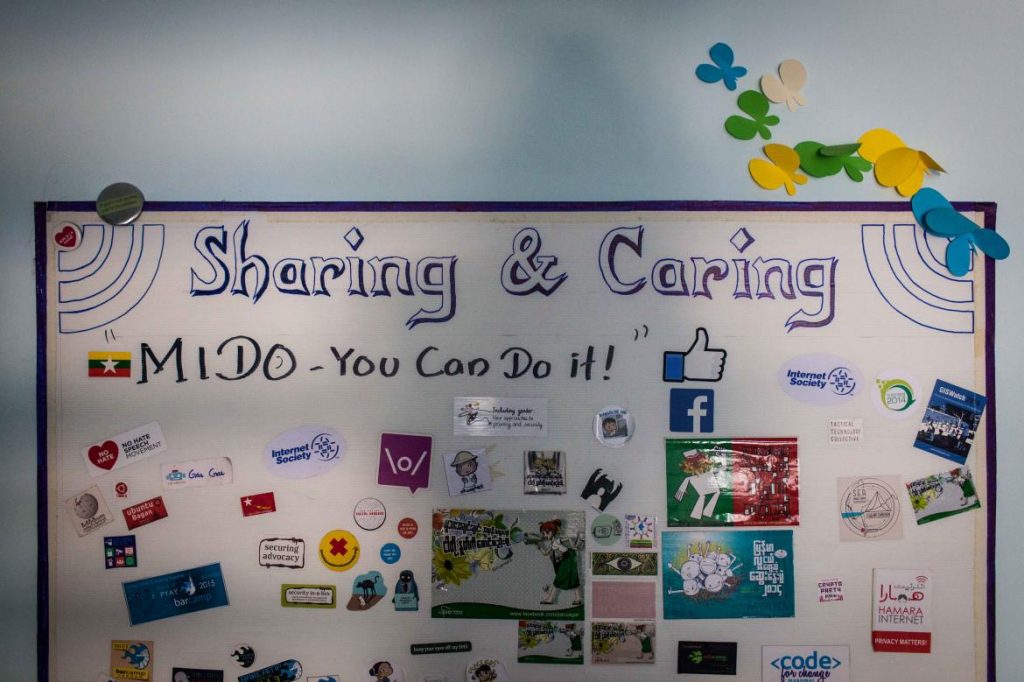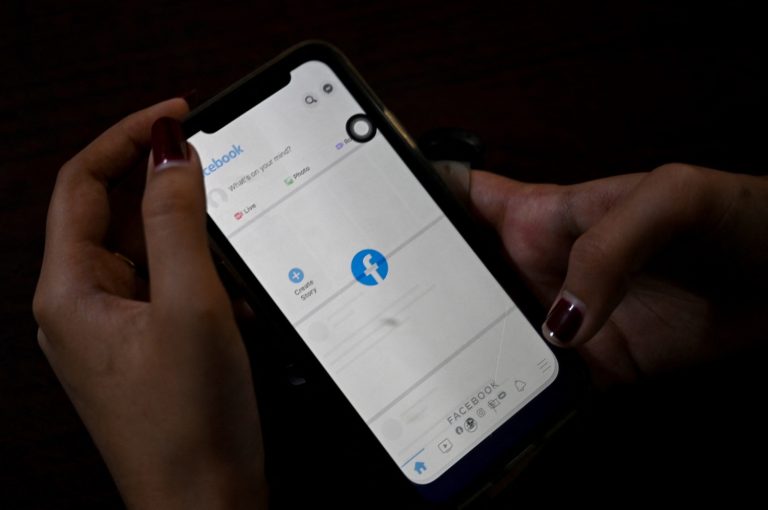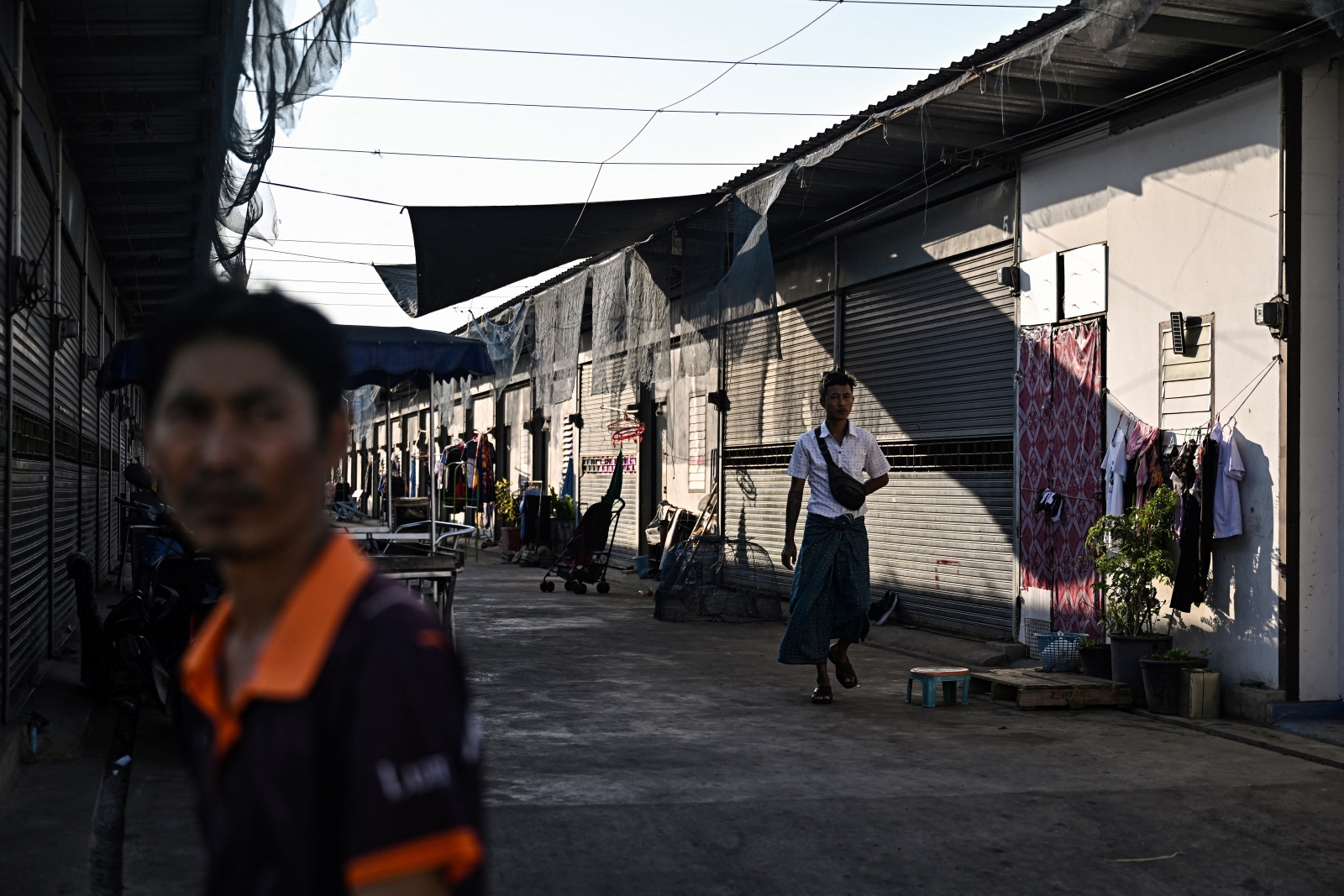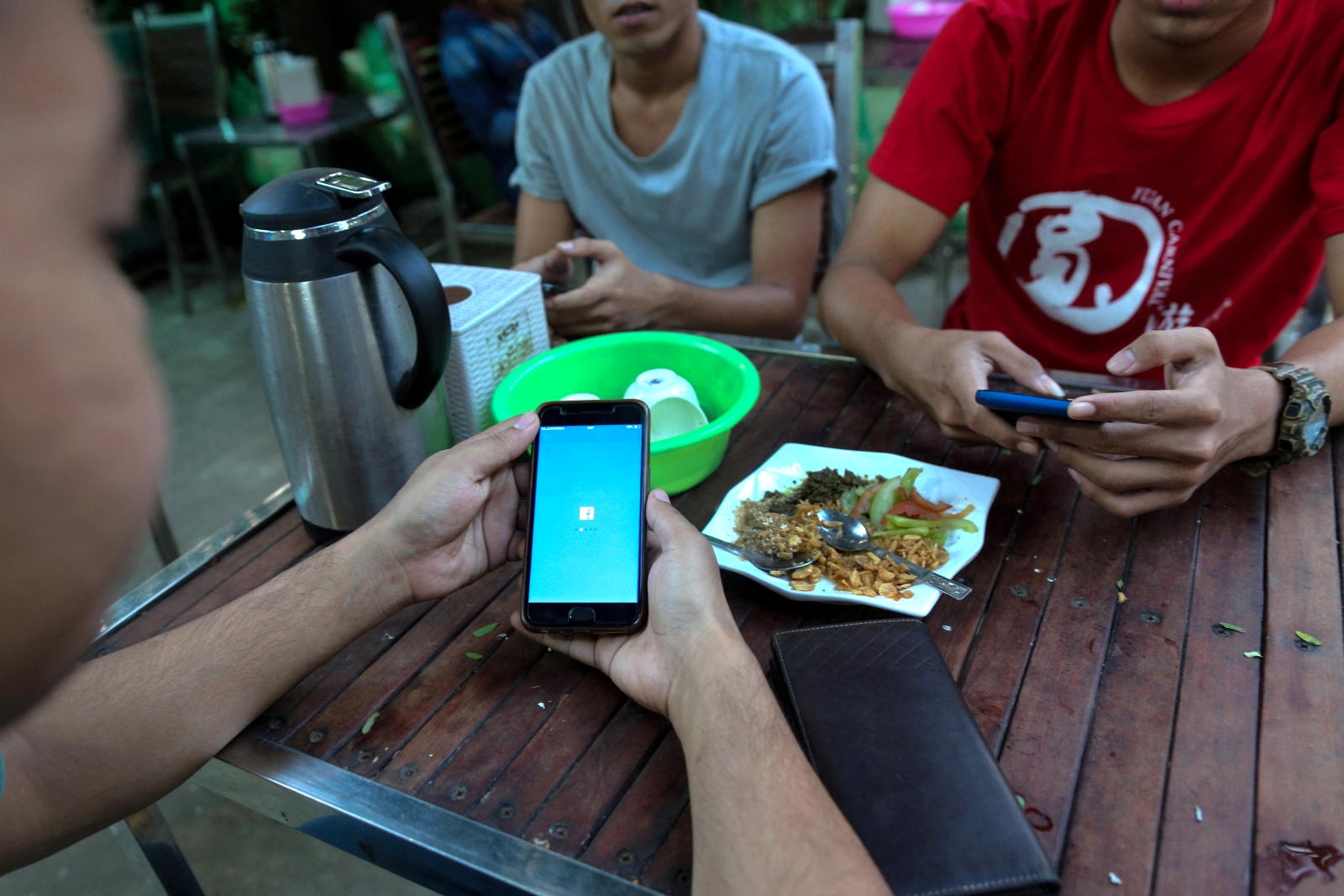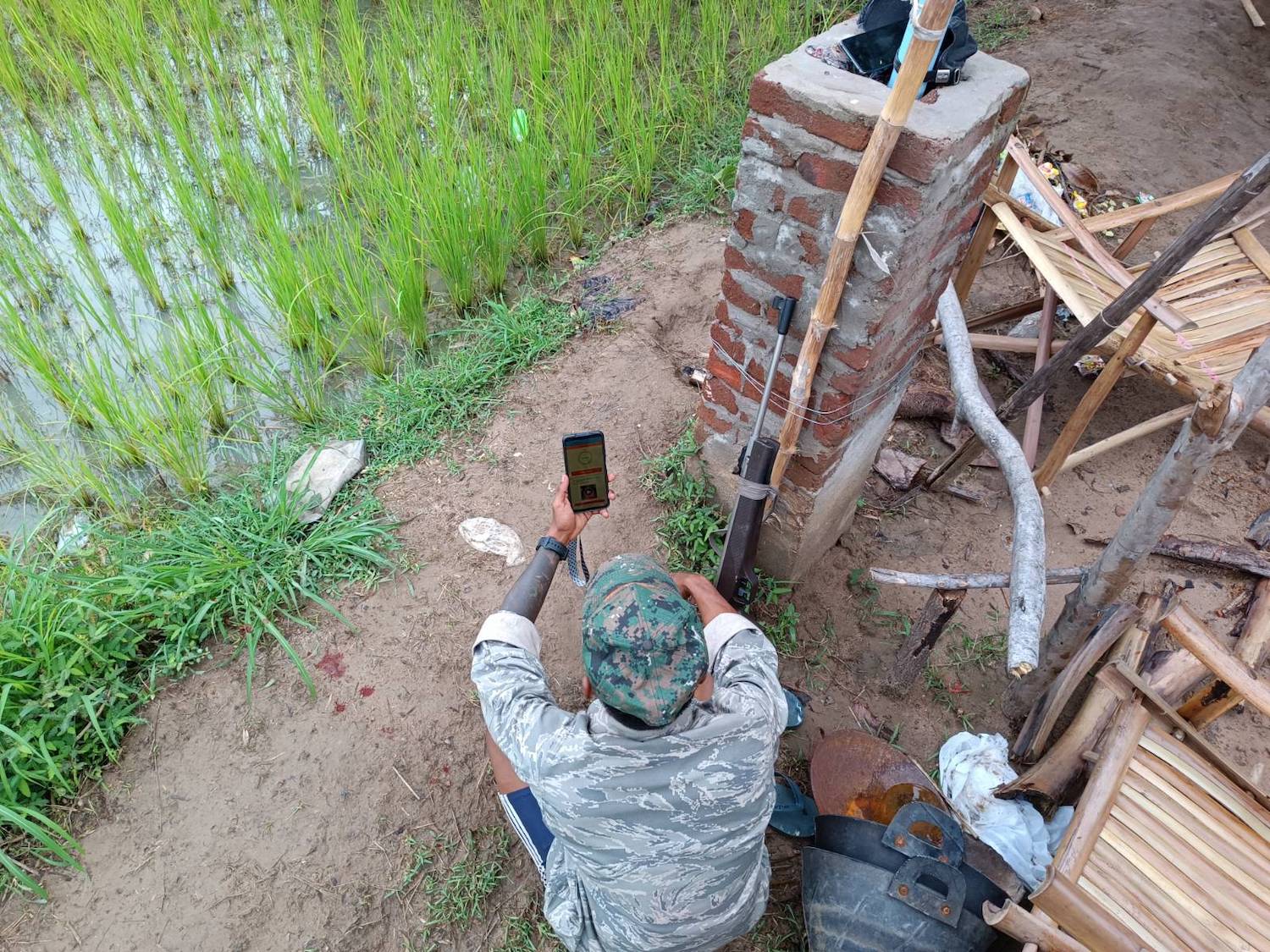Groups that monitor hate speech on social media are concerned about a resurgence of posts on sensitive issues after the new government takes office.
By KYAW PHONE KYAW | FRONTIER
Twitter is said to have played a significant role in the Arab Spring, but in Myanmar it’s Facebook that dominates social media and influences attitudes and opinions. Some Myanmar people think that Facebook is the internet. Surveys show that that Facebook is preferred by more than 98 percent of social media users in Myanmar. There’s concern about the influence of the internet and social media on the nation’s youth. In a letter to the organisers of a literary festival held in Yangon last month, National League for Democracy leader Daw Aung San Suu Kyi chided young people for wasting time on computer and internet games and social media.
The dominance of Facebook is good and bad, Ma Htaike Htaike Aung, the executive director of the Myanmar ICT for Development Organization, told Frontier. “The good thing is that we only need to monitor Facebook for posts that can inflame tensions and the bad thing is that it is easier for ill-intentioned groups to reach those who are easily influenced,” she said.
Ma Htaike Htaike Aung was referring to SOS – Safe Online Space – a team established by MIDO in October last year that monitors about 80 Facebook accounts and pages a day. The idea for a team to monitor and counter hate speech emerged from the role Facebook posts played in the sectarian violence that has cost hundreds of lives in Myanmar since it erupted in Rakhine State in 2012.
Posts shared on Facebook helped to inflame the violence in Rakhine by showing gruesome images of the body of a Buddhist rape victim. Fake Facebook accounts have also been used to make defamatory and personal attacks on members of democratic groups, such as the National League for Democracy. After a rumour on Facebook about a rape that never occurred triggered deadly sectarian violence in Mandalay in 2014, the government said it had developed a partnership with the company to monitor Myanmar language sites for malicious speech.
Support more independent journalism like this. Sign up to be a Frontier member.
But the hate speech keeps coming, from Facebook pages such as Myanmar Express, Ludu Maung Kar Lu and Pyi Chit Thar, which are conspicuously active at times of heightened community tensions.
MIDO’s SOS team has noticed changes in the topics highlighted by malicious Facebook accounts.
“In the period before the election there were often attempts to incite unrest over religion but on that issue they are now silent and are instead spreading rumours about gangs that snatch children and other sensational crimes,” Ma Htaike Htaike Aung said.
Columnist Ma Mon Mon Myat, who has been monitoring Facebook since 2012, has found that when she tracks notoriously malicious pages they originate from the same IP address. She said a strategy of those operating the accounts is to post sensationalised news to attract attention and change to hate-speech and propaganda when they have a big audience.
“I think the topics they are choosing now are aimed at making the people emotional or angry,” Ma Mon Mon Myat said. “Religion as a issue is no longer creating the social tensions it has been because people are having a rethink about it, so they are changing to focus on issues involving criminal gangs,” she said.
No arrests have been made of those responsible for posts that inflamed social tensions.
However, activists U Patrick Khum Ja Lee and Ma Chaw Sandi Htun are each serving jail terms of six months each over separate incidents involving Facebook posts that satirised Tatmadaw Commander-in-Chief Senior General Min Aung Hlaing. The NLD is taking legal action against a member of the Union Solidarity and Development Party over a photo-shopped image of Daw Aung San Suu Kyi.
The Myanmar Police Force lists on its official Facebook page the hotline number of its cyber crime division but Frontier was unable to get through despite six attempts over three days. When Frontier called MPF headquarters in Nay Pyi Taw to ask for the number, a duty officer said he was unaware of the cyber crime division.
In a major development for prosecuting cyber crimes, an amendment to the Evidence Act approved by parliament on December 24 means that digitally-stored information, such as images, videos and voice files, can be submitted as evidence in court cases.
Senior lawyer Ko Thurein said the amendment meant there would be more grounds for taking legal action over social media posts because it will not be restricted to charges under the 2013 Telecommunications Law.
“People will be able use other laws, such as those involving defamation, to take legal action,” he said.
Whether the amendment will see greater scrutiny of the internet and social media sites by the MPF’s cyber crime division remains to be seen.
“The police force has the ability to detect offences because charges have been brought against politicians and activists; if they have the willingness, they can do it,” said Ma Mon Mon Myat.
The SOS team is worried that groups involved in inflaming community tensions will become more active after the NLD government takes office.
“They (the agitators) are circulating insignificant rumours at the moment but I have a feeling they are making preparations to do something else,” Ma Htaike Htaike Aung said.
Ma Mon Mon Myat said some hate-speech sites such as myanmarexpress.net have been deactivated but have extended the terms of their domain names, a possible indication that their silence is temporary.
Cyber crimes, such as defamation, and the use of social media to instigate social unrest will be among the many challenges that confront the inexperienced NLD government.
Frontier approached prominent former blogger and newly-elected NLD MP Ko Nay Phone Latt to ask about the party’s policy on social media. He was unable to comment because the NLD leadership has banned its MPs from talking to the media.
Groups that monitor Facebook sites for malicious content have adopted the strategy of verifying if rumours have any basis in reality. The SOS team has trained 90 monitors, who are based in six cities, in Facebook etiquette and how to respond to rumours.
The law is there to take action, said Ko Thurein. “The next government needs more than just the law; the challenge is enforcement,” he said.


